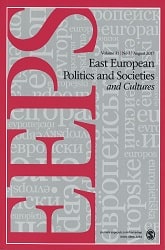Political Learning in Post-Communist Elections
Political Learning in Post-Communist Elections
Author(s): Karen Dawisha, Stephen DeetsSubject(s): Political history, Government/Political systems, Electoral systems, Transformation Period (1990 - 2010), Post-Communist Transformation
Published by: SAGE Publications Ltd
Keywords: elections; democratization; Eastern Europe; Eurasia; Russia; post-communism;
Summary/Abstract: This article draws several conclusions. First, that elections provide critical information for shaping behavior, since in the second and third rounds, party elites and voters behaved in ways that were rational considering the outcome of the previous election. Second, on the whole, states have adopted a variety of systems and rarely changed them in major ways after the second round of elections, indicating that electoral systems quickly become constraining institutions. Where they have been changed, movement has been away from the extremes of either high disproportionality or proportionality. Third, results from the first three rounds of elections indicate declines in party system fragmentation, disproportionality, volatility, and wasted votes, indicating a growth in strategic voting. Finally, except in the very important case of party volatility, and Russia, the view that there is a generalized gap between the post-Soviet cases and the East European cases is not supported by the evidence.
Journal: East European Politics and Societies
- Issue Year: 20/2006
- Issue No: 04
- Page Range: 691-728
- Page Count: 38
- Language: English
- Content File-PDF

